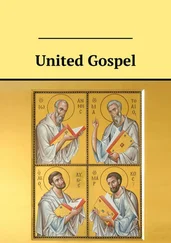Orson Whitney - Gospel Themes
Здесь есть возможность читать онлайн «Orson Whitney - Gospel Themes» — ознакомительный отрывок электронной книги совершенно бесплатно, а после прочтения отрывка купить полную версию. В некоторых случаях можно слушать аудио, скачать через торрент в формате fb2 и присутствует краткое содержание. Жанр: foreign_prose, foreign_religion, Философия, foreign_psychology, foreign_antique, на английском языке. Описание произведения, (предисловие) а так же отзывы посетителей доступны на портале библиотеки ЛибКат.
- Название:Gospel Themes
- Автор:
- Жанр:
- Год:неизвестен
- ISBN:нет данных
- Рейтинг книги:3 / 5. Голосов: 1
-
Избранное:Добавить в избранное
- Отзывы:
-
Ваша оценка:
- 60
- 1
- 2
- 3
- 4
- 5
Gospel Themes: краткое содержание, описание и аннотация
Предлагаем к чтению аннотацию, описание, краткое содержание или предисловие (зависит от того, что написал сам автор книги «Gospel Themes»). Если вы не нашли необходимую информацию о книге — напишите в комментариях, мы постараемся отыскать её.
Gospel Themes — читать онлайн ознакомительный отрывок
Ниже представлен текст книги, разбитый по страницам. Система сохранения места последней прочитанной страницы, позволяет с удобством читать онлайн бесплатно книгу «Gospel Themes», без необходимости каждый раз заново искать на чём Вы остановились. Поставьте закладку, и сможете в любой момент перейти на страницу, на которой закончили чтение.
Интервал:
Закладка:
Orson F. Whitney
Gospel Themes / A Treatise on Salient Features of 'Mormonism'
PREFACE AND DEDICATION
This little book was written and compiled at the request of the General Priesthood Committee, under the sanction of the First Presidency of the Church, for the use and benefit of the Priesthood Classes, throughout the Stakes and Wards of Zion.
The treatise, "Gospel Themes," represents the best effort I could make under the circumstances in which that effort was put forth. Many interruptions occurred, consequent upon the performance of other duties, and I had no opportunity to submit the manuscript to a committee of revision, prior to publication; the usual course with works of this character. I was barely able to get it ready for the printer within the time allotted for its preparation. But I tried to be accurate, and am not aware that I made any mistakes.
While lacking the help of a revisory committee, I received, and hereby gratefully acknowledge, valuable suggestions from Elders David O. McKay and Edward H. Anderson, members of the Priesthood Committee, and from others whom I consulted. Moreover, Brother Anderson was with me in proof-reading the work, and in engineering it through the press.
My aim has been, not to give exhaustive treatment to any subject, but to throw in sight certain themes, and dwell briefly upon points of doctrine, prophecy, history, and illustration, that I thought would be helpful to the brethren of the Priesthood—those who are studying the Gospel at home, and those who are preaching it abroad. To both classes this volume is affectionately dedicated.
THE AUTHOR.Salt Lake City, Christmas, 1913.
The Story of God
CHAPTER I
The Gospel Defined.—The English word "Gospel" comes from the Anglo-Saxon "Godspell," or God-story—the story of God. It derives its significance from that great central idea of the Christian faith—the coming of God as the Son of God to redeem and save mankind. The joyful intelligence of the advent of the world's Redeemer, proclaimed by the angels to the shepherds on the Judean hills (Luke 2:10), furnishes another name for the gospel—"good tidings," or, as it is otherwise rendered, "glad tidings of great joy."
God the Savior.—"God himself shall come down among the children of men, and shall redeem his people, and because he dwelleth in flesh he shall be called the Son of God" (Mosiah 15:1,2). prediction by Abinadi the prophet, centuries before the birth of the Savior, had been preceded by a This similar prophecy from King Benjamin, another Nephite seer (Mosiah 3:5). The fulfilment of these foretellings is recorded in the opening verses of the gospel according to St. John, where reference is made to "the Word" that was in the beginning "with God"—the Word that "was God," and was "made flesh" and dwelt among men. In him, as Paul affirms, "dwelleth all the fulness of the Godhead bodily" (Col. 2:9).
Foundation and Superstructure.—When we speak of the gospel, therefore, we should bear in mind that the term means something more than faith, repentance, baptism, the laying on of hands for the gift of the Holy Ghost, and other rituals and requirements in the Church of Christ. We must not isolate "the laws and ordinances of the gospel" from the basic principles upon which they rest—the mighty foundation stones of sacrifice and redemption, without which all this sacred legislation would be aimless and of no effect. Nor can the basic principles which make operative those laws and ordinances be dissociated from the idea of eternal progression, the great and paramount purpose for which the gospel code was framed, the gospel in its fulness instituted.
Fulness of the Gospel.—The phrase, "fulness of the gospel," should be understood in a relative sense, as pertaining to the revealed will of God. There can be no absolute fulness, with man, until all things are made known to him. The fulness of the gospel as delivered to the Nephites and other ancient peoples, and told of in the inspired records that have come down to us, differed from, in that it was not so complete as is the fulness of the gospel which the Latter-day Saints enjoy. Truth is always the same; it never contradicts itself; but more of its principles have been revealed in modern times than at any previous period. Never before, upon this earth, has there been such a gospel fulness as that delivered to the Prophet Joseph Smith. And the end is not yet; for, as he himself said in one of his latest recorded utterances: "Those things which never have been revealed from the foundation of the world, but have been kept hid from the wise and prudent, shall be revealed unto babes and sucklings in this the dispensation of the fulness of times" (D&C 128:18).
It may help the reader to understand how there can be more than one "fulness of the gospel" by bearing in mind what has been made known concerning the final judgment, or the various awards of glory to be meted out to redeemed souls after the resurrection. Their glory shall be that by which their bodies are quickened, and whether quickened by a portion of the celestial, the terrestrial, or the telestial glory, they shall "receive of the same, even a fulness" (D&C 88:28-31). But one fulness can differ from another, even as differ the glories, and even as capacities differ—the power to receive and contain. The absolute fulness of the gospel can only come to a people prepared to receive and make a wise use of it. Until the Latter-day Saints are in that condition, they must be content with a comparative fulness, or all that they can contain of the divine wisdom. Paul the apostle was contemplating this subject when he wrote: "For we know in part, and we prophesy in part. But when that which is perfect is come, then that which is in part shall be done away" (1 Cor. 13:9,10).
Gospel Features.—The gospel, in its fullest sense, signifies everything connected with the redemptive career of that glorious and divine Being known among men as Jesus of Nazareth, but who was and is no other than Jehovah, the God of Israel (D&C 110:1-4), who "came unto his own" and was rejected by them, was crucified at their instigation, and died to redeem the world. The accounts given by Matthew, Mark, Luke, and John, are properly termed "gospels," because they are narratives of the personal ministry of our Lord; but they are only parts of the complete God-story. The Savior's life, death, resurrection and ascension, with the conditions prescribed by him upon which fallen man might profit further from his sacrifice for human redemption,—these are all gospel features, but not the gospel in its entirety. The full "story" of the Redeemer and Savior—the God who died that man might live—involves events both past and future, events premortal and post-mortal, scenes in which he was chosen to play his mighty part in the great tragedy of human experience, and scenes yet to come in which he will make another and a more glorious appearing upon the stage of time, enacting the illustrious role of King of kings and reigning over the earth a thousand years.
Salvation and Exaltation.—Paul defines the Gospel of Christ as "the power of God unto salvation" (Rom. 1:16). He might have gone further, had he so desired, or had it been timely, and shown that the Gospel of Christ is the power of God unto exaltation—a plan devised by Omnipotent Wisdom whereby man, the child of God, may advance from stage to stage of soul development, until eventually he becomes like unto his Heavenly Parent, inheriting eternal thrones and dominions, and receiving "a fulness of joy."
This is exaltation. It is more than salvation, being an extension of that idea or condition—salvation "added upon;" just as salvation is an extension of, or an addition to, redemption. A soul may be redeemed—that is, raised from the dead, and yet condemned at the final judgment for evil deeds done in the body. Likewise may a soul be redeemed and saved, and yet come short of the glory that constitutes exaltation. To redeem, save, and glorify, is the threefold purpose of the Gospel of Jesus Christ.
Читать дальшеИнтервал:
Закладка:
Похожие книги на «Gospel Themes»
Представляем Вашему вниманию похожие книги на «Gospel Themes» списком для выбора. Мы отобрали схожую по названию и смыслу литературу в надежде предоставить читателям больше вариантов отыскать новые, интересные, ещё непрочитанные произведения.
Обсуждение, отзывы о книге «Gospel Themes» и просто собственные мнения читателей. Оставьте ваши комментарии, напишите, что Вы думаете о произведении, его смысле или главных героях. Укажите что конкретно понравилось, а что нет, и почему Вы так считаете.












